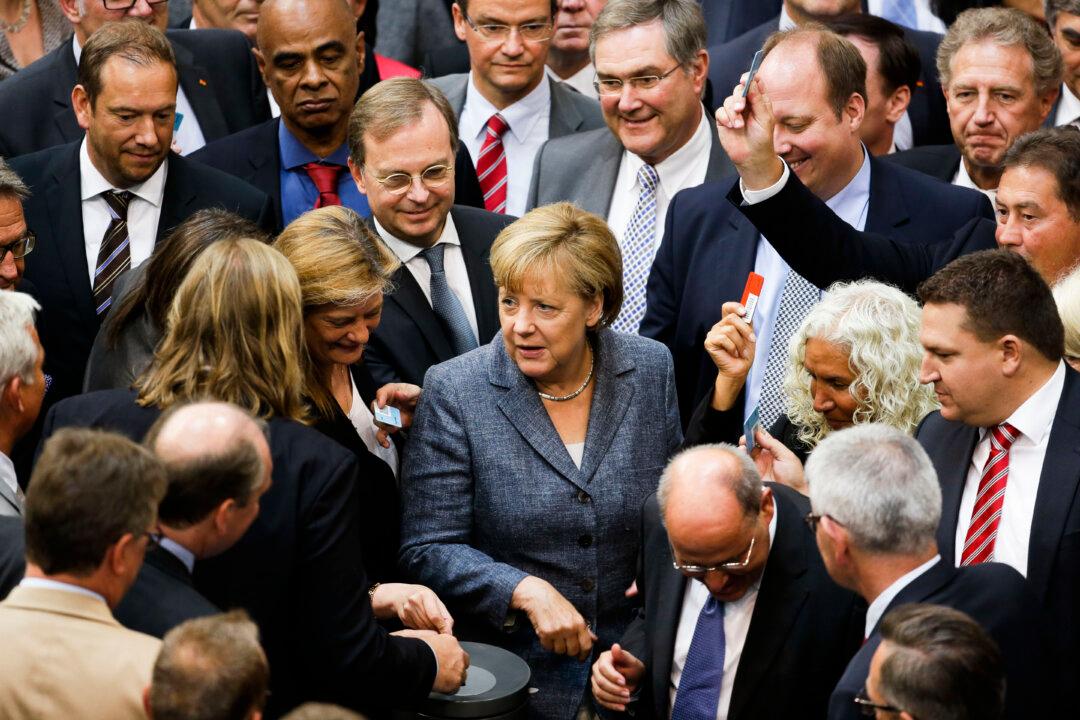BERLIN — European bailout fund supervisors on Wednesday approved the release of billions of euros to help rebuild Greece’s devastated economy just as a new debt payment looms.
The move — a virtual formality — came after Germany’s parliament approved the bailout package, along with the assemblies of other creditor nations, removing a big hurdle to release the new loans.
The European Stability Mechanism board said that it “will provide up to 86 billion euros ($95 billion) in financial assistance to Greece over three years.” A first tranche of 26 billion euros ($29 billion) can now be made available to meet Greece’s debts and help recapitalize its banks.
Greece is due to make a new debt payment to the European Central Bank on Thursday.





